Erdogan's new roadmap for Syria and Libya
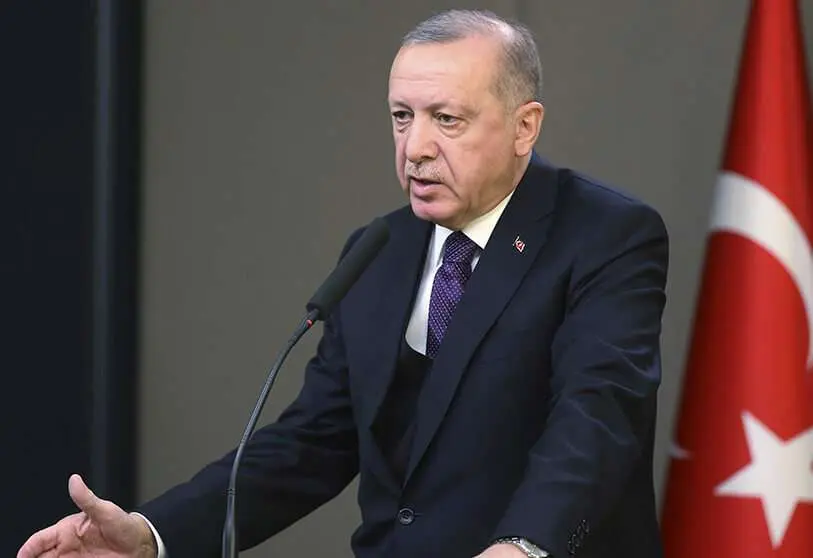
The civil war in Syria has been able to put an end to years and years of relations between Ankara and Damascus. Syria is a clear example of the fleeting nature of certain alliances in the Middle East. Those who were allies a decade ago now have the courage to call themselves enemies. The Turkish military intervention in Syria has consisted of a series of military operations carried out by the country presided over by Erdogan since 2011, in order to protect its interests in the region. In October 2019, Turkey launched an offensive in northwest Syria, further exacerbating tensions between the protagonists of this conflict.
Since then, the Turkish leader has gradually intensified his threats against Damascus. These threats have not pleased Moscow, a country with which Turkey maintains a tense diplomatic alliance to try to find peace in Syria. "The issue of Idlib is as important as Afrin and the region where Operation Fountain of Peace was conducted. We will meet again on March 5 to discuss the same problems," the Turkish president said last Saturday, according to the Anadolu news agency, which is close to Erdogan's executive.
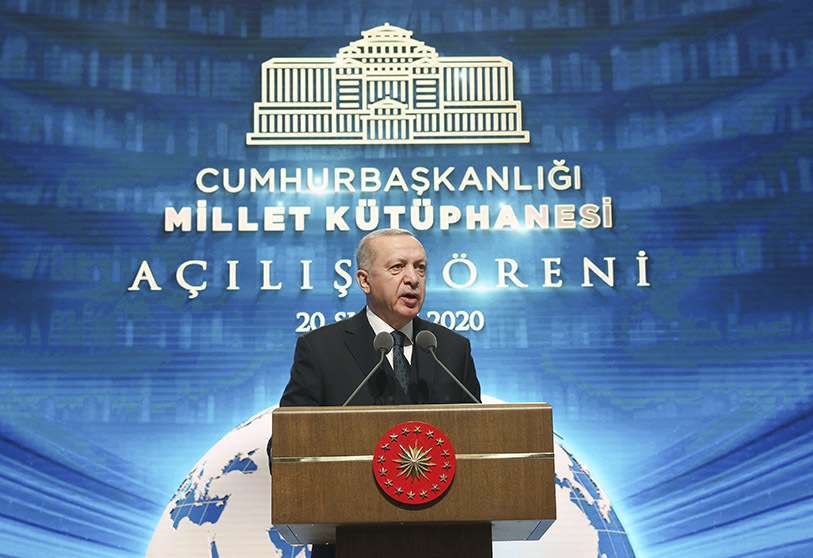
However, the Turkish president admitted on Tuesday that there is still no agreement on holding a summit between Russia, France and Germany on March 5 to discuss the disastrous consequences of the conflict in Syria. Even so, the Turkish leader has assured that he hopes to meet with his Russian counterpart at this time. Furthermore, he has announced that Russia and Turkey will meet this Wednesday in a new round of negotiations to reduce the tension in Idlib. "First we must resolve Idlib," said the Turkish leader.
For their part, Macron and Merkel have called on Putin to put an end to the instability in this region. "They have demanded an end to the fighting in Idlib and an end to the obstacles to humanitarian access," said the German representation to the EU in a message on Twitter. The meeting between Macron and Merkel took place in the sidelines of the summit in Brussels on Thursday.
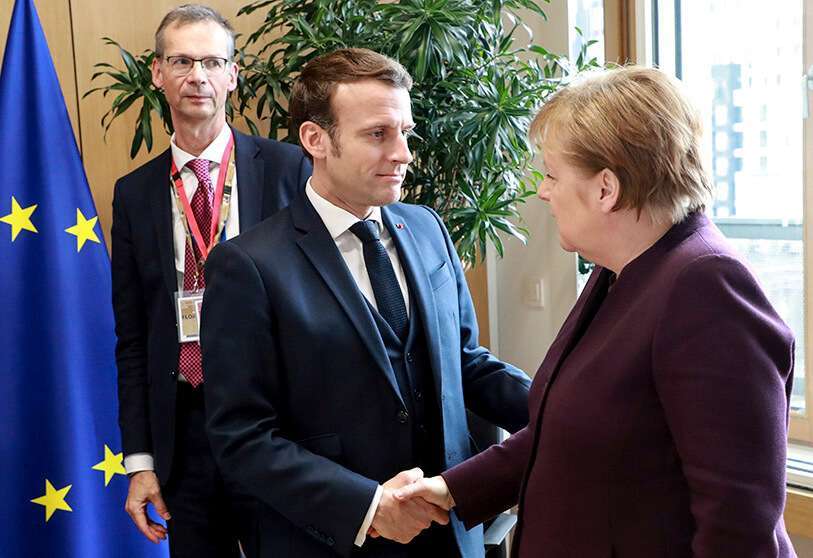
Syrian President Bashar Al-Assad's forces are on an offensive to retake Idlib, the last rebel-controlled region in Syria. UN Secretary General António Guterres last week urged both sides to stop the escalation of violence in this war-torn part of the country, where nearly three million people have been forced to flee by constant fighting and bombing.
The Turkish incursion into Syria has had profound consequences at the strategic level. Erdogan's desperation to avoid a victory for Assad has led him to intensify his dialectic against Assad's ally Russia and to increase tensions in the region. At least 17 Turkish soldiers have been killed by Syrian regime forces in Idlib this month, killings that led Erdogan to announce that "intervention in Idlib is imminent.
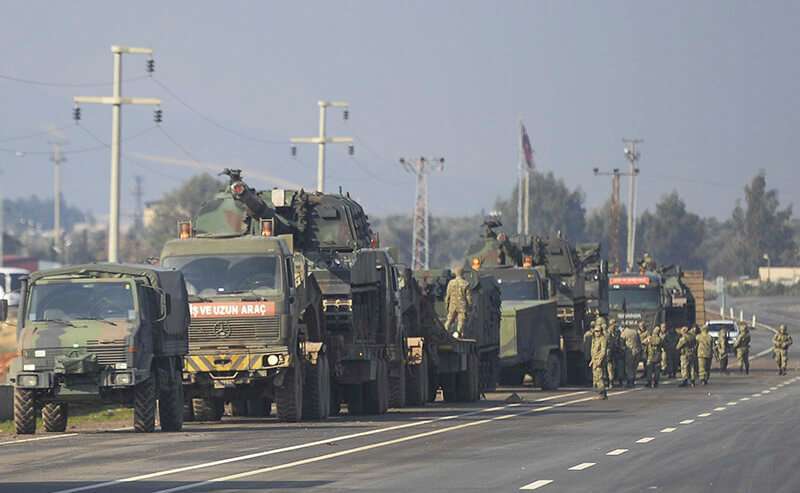
Erdogan reported on Saturday that Turkey had established a "road map" for Syria after speaking on the phone with the three leaders; meanwhile, the Kremlin explained that Russia was considering a summit between the four powers. Erdogan made these statements during a press conference in Ankara before starting his official trip to Azerbaijan. The aim of this visit is to review all aspects of the relations between Turkey and Azerbaijan, as well as to deepen the cooperation between both nations.
In this same speech, the President of Turkey acknowledged that his country has suffered the first military casualties in Libya, where it supports the Government of National Accord (GNA), based in Tripoli and led by Fayez Sarraj. "Two soldiers have died in Libya," he said, without specifying the circumstances in which these casualties occurred. He has also criticised the fact that the field marshal and leader of the Libyan National Army, Khalifa Haftar, "lacks legitimacy and receives arms and financial support from other countries". These statements came several hours after a Libyan-flagged freighter from Turkey was set to dock in the Libyan enclave of Misrata.
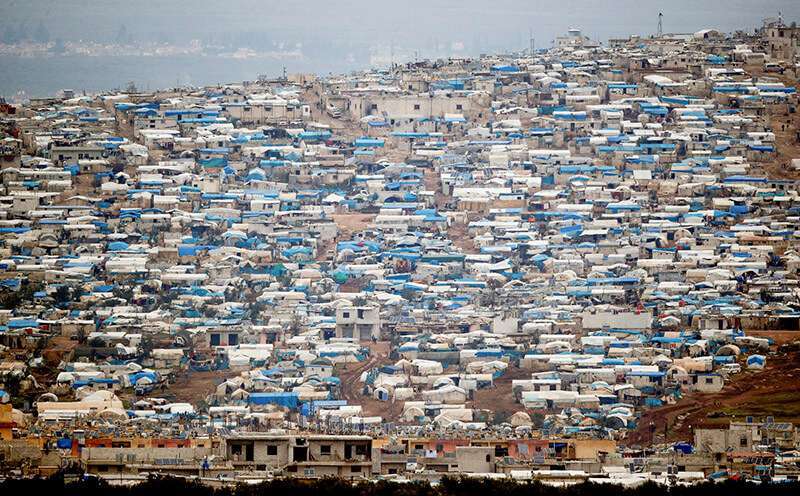
Turkey is partly to blame for the fact that the peace negotiations in Libya are at a standstill. A week ago, the Tripoli-based Fayez Sarraj's National Accord Government announced that it was suspending its participation in the Geneva joint military commission "until firm answers are given against the perpetrator of the attack on a ship in the city's port" and has said that it plans to "respond firmly to the attack at the appropriate time". Over the past month, Turkey has been sending armed ships to Tripoli and Misrata, another port allied to the executive led by Fayez Sarra. This distancing between the two governments in Libya became visible on Monday when both sides announced that they would not participate in the round of political contacts scheduled for Wednesday in Geneva.
Turkey's military intervention in Syria and Libya has marked a new milestone in Ankara's influence in the region. Such actions are rooted in Erdogan's political project and his desire for power. Turkey has been changing its definition of threat in recent years and has been acting according to what it considered at the time, though often without thinking about the consequences. Meanwhile, in the midst of this spiral of instability are the thousands and thousands of civilians who every day struggle to survive and who every night dream of peace, a peace which, for now, is only a mirage.








